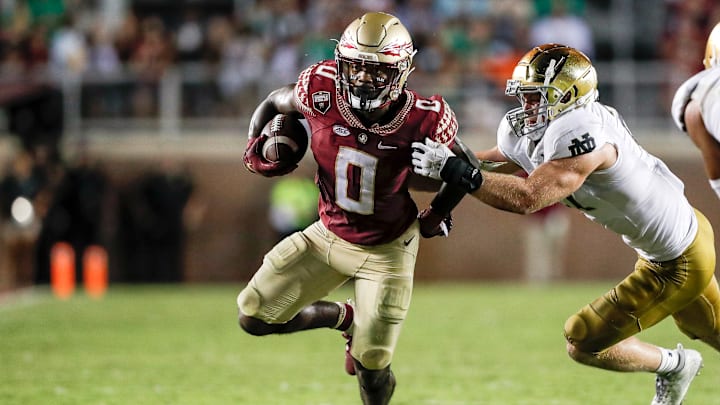Early BCS Era (1998-2003)
The first years of the Bowl Championship Series were marked by a constantly shifting formula for deciding which two teams earned the right to play in the title game. As polls and computer systems entered and left the algorithm, a string of controversies ensued as some teams found themselves left out in the cold in much the same way the Bowl Coalition and Bowl Alliance had fallen flat.
The new system did at least include the Pac-10 and Big Ten conferences in the fold, helping reinforce its legitimacy. But that could only paper over the fact that the BCS was unsure at this point what it purpose it really hoped to serve as a curator of national championship narratives. A 12-team playoff would have erased many of the lingering questions that hovered over the BCS in its first six years and created some incredible matchups for fans.
1998
#7 Arizona Wildcats (11-1 Pac-10 runner-up)
vs.
#10 Tulane Green Wave (11-0 C-USA champion)
Tulane finished the year as one of two Division I-A teams with perfect records, but was left out of the BCS bowl picture entirely as the champion of an unaffiliated conference. In a 12-team playoff, Shaun King and the Green Wave would have earned a chance to travel to Tucson and face Pac-10 runner-up Arizona. The Wildcats were riding a six-game winning streak after suffering their only loss of the year to Pac-10 champion UCLA in early October, and this would be a showdown between two teams with massive momentum and their own Cinderella stories to tell.
1999
#5 Tennessee Volunteers (9-2 SEC East runner-up)
vs.
#12 Marshall Thundering Herd (12-0 MAC champion)
Much like the first year of the BCS, Marshall was left out in the cold by the BCS despite running the table as a 12-0 MAC champion. Had a playoff existed that season, the Thundering Herd would have squeaked into the bracket as the last seed. Their reward—a trip to Rocky Top and a chance to take on a team that was defending national champion in the real world. Tennessee still had Tee Martin and a chance to rewrite its narrative after falling behind Florida in the SEC East.
2000
#6 Oregon State Beavers (10-1 Pac-10 co-champion)
vs.
#11 Notre Dame Fighting Irish (9-2 independent)
As hard as it might be to believe as the Pac-12 implodes on itself, the league was often the deepest in the country at the turn of the century. In 2000, a three-way tie between Pacific Northwest rivals Washington, Oregon, and Oregon State left all three on the outside looking in at the national championship discussion. In an alternate universe, the Beavers would've played nine-win Notre Dame at Reser Stadium in Corvallis for the right to face a Miami team with their own hangups after being left out of the top two by the BCS.
2001
#7 Tennessee Volunteers (10-2 SEC runner-up)
vs.
#10 Maryland Terrapins (10-1 ACC champion)
Maryland had reason to feel slighted by the BCS rankings in 2001, when a single defeat to Florida State in Tallahassee dropped the Terrapins to tenth in the final rankings. In a playoff format, that would set up Ralph Friedgen's team to travel to Knoxville for a showdown against SEC East winner Tennessee. The Volunteers fell to LSU in the SEC championship game, but they would still earn a home game in the opening round thanks to a deep schedule.
2002
#7 Oklahoma Sooners (11-2 Big 12 champion)
vs.
#10 Texas Longhorns (Big 12 South runner-up)
In their long history against one another, the Red River Shootout between the Longhorns and Sooners has only twice been played in the state of Oklahoma. The last time was in 1922, when Texas won 32-7 in Norman. Oklahoma and Texas only met once in the Big 12 title game, given they were in the same division for most of the league's history. This would undoubtedly be the contest with the highest stakes in the decades-long rivalry between the two schools.
2003
#6 Ohio State Buckeyes (10-2 Big Ten runner-up)
vs.
#11 Miami RedHawks (11-1 MAC champion)
Cinderella stories are even better in college football when they also present the opportunity to earn regional pride. In the state of Ohio, every football team—from high school to the NFL—exists in the shadow of the Buckeyes. In 2003, a Ben Roethlisberger-led Miami RedHawks team lost their season opener at Iowa and then ran the table with 12 straight wins and a MAC crown. In a hypothetical playoff that year, the RedHawks would travel to the Horseshoe for a shot at state bragging rights and a trip to the quarterfinals.
